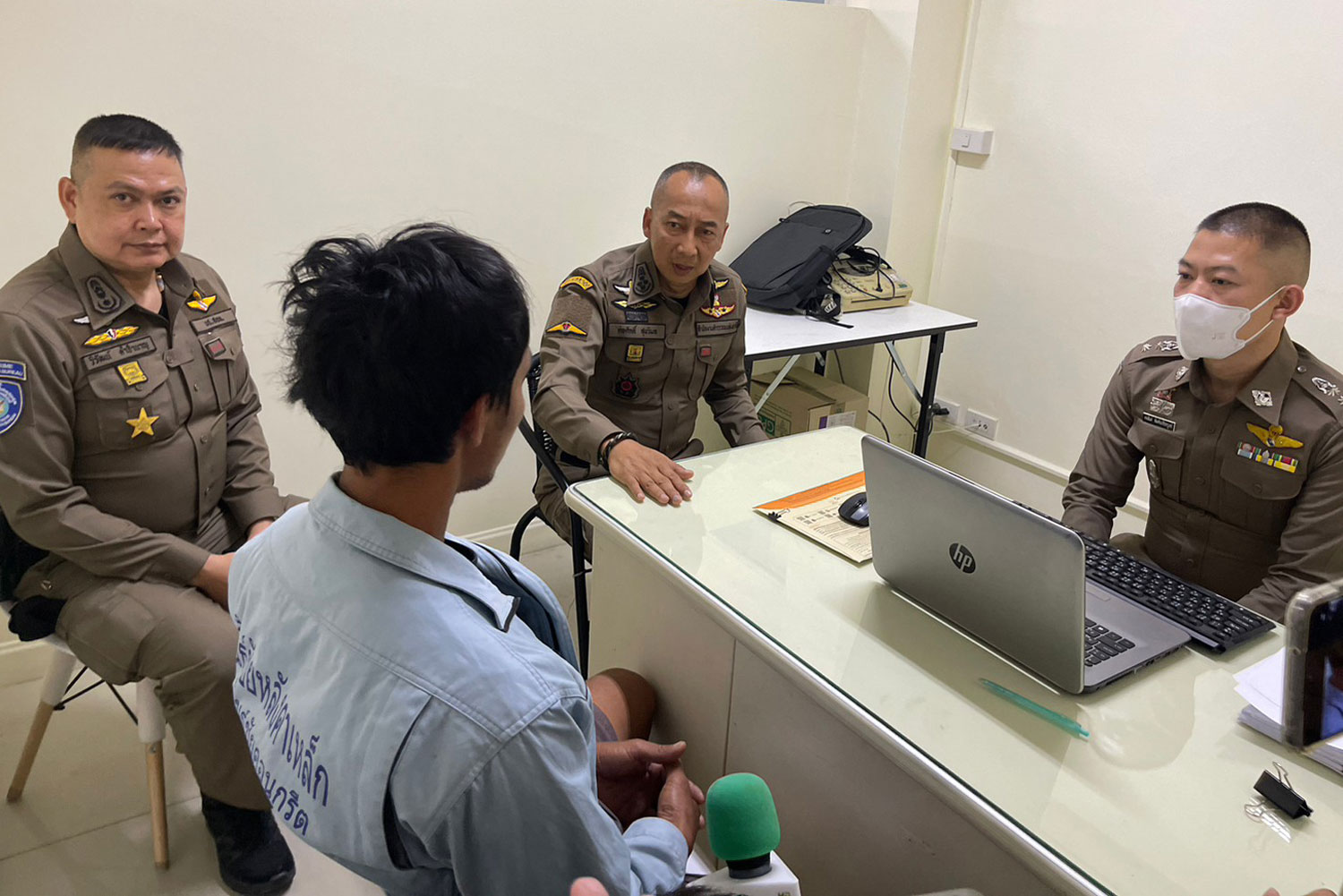Gang duped victims into clicking on link, took over their phones and stole B150 million

Police have arrested four members of a gang that duped more than 100 people into clicking a link that enabled the perpetrators to remotely control mobile phones and steal over 150 million baht.
Three men and a woman were arrested separately in four provinces, deputy national police chief Pol Gen Torsak Sukwimol said on Friday.
Wipha Wongsongkran, 48, was arrested at a petrol station in Muang district of Samut Songkhram. The other men were a Thai teenager identified only as Thanawat, 19, who was arrested in Kaeng Khoi district of Saraburi; Wutthiphong Phengsrikhot, 28, in Nong Phok of Roi Et; and Myanmar national Zaw Win, in Muang district of Chiang Mai.
The four were tasked with opening bank accounts to receive money transfers from victims’ bank accounts, said Pol Gen Torsak.
To lure victims, members of the gang claiming to be staff of Lion Air sent phone messages notifying people that they were eligible for a free air ticket and attaching a link. They then phoned the victims to tell them to add them as friends in a “LionAir Group” Line chat group, he said.
The victims had been persuaded to provide personal data in the link. This enabled the gang to remotely control their mobile phones. The gang then transferred money from the victims’ bank accounts to accounts of gang members.
More than 100 people fell victim to the gang with damage amounting to over 150 million baht. Authorities have so far seized 25 million baht.
The four were among six suspects wanted on arrest warrants for colluding in public fraud, putting false information into a computer system and laundering money.

Police officers use a chart to show how members of a scam gang preyed on more than 100 victims. (Photo supplied/Wassayos Ngamkham)
